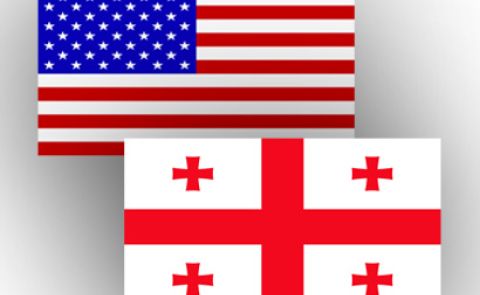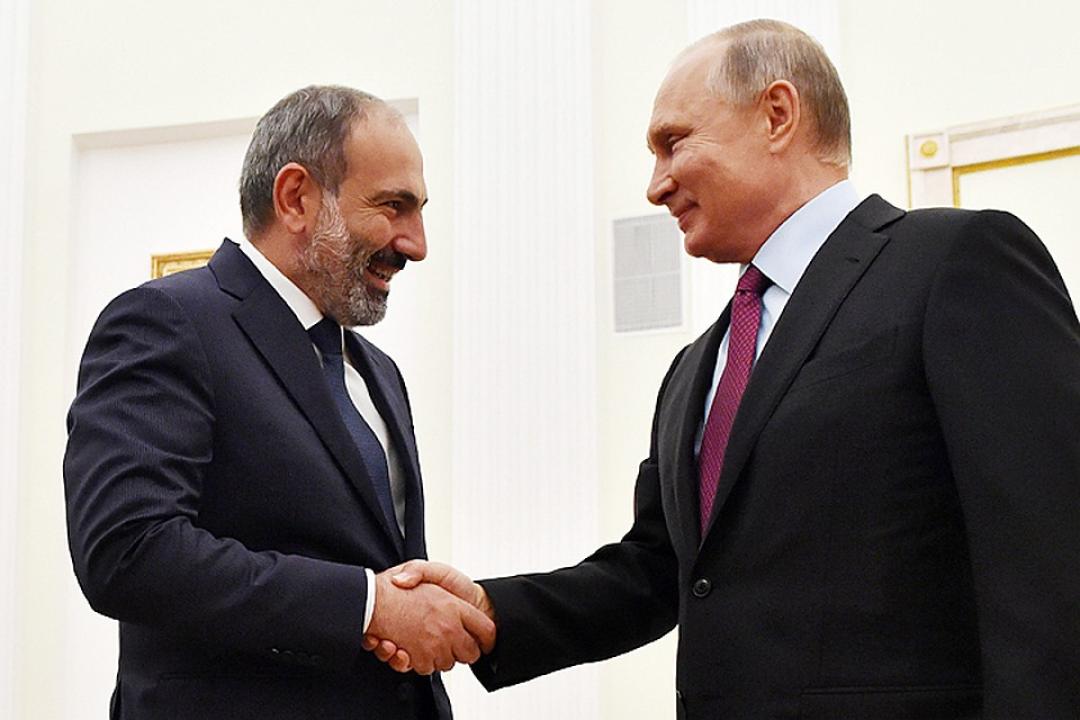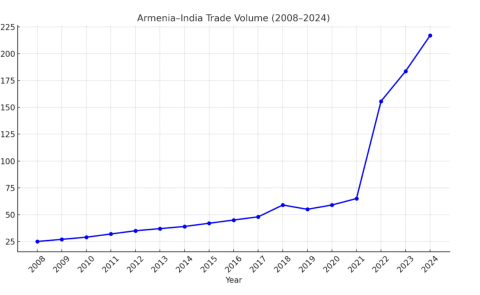
Frustrated with the West, Yerevan fortifies relations with Moscow

The fact that the Armenian Prime Minister Nikol Pashinyan - the current chair of the Collective Security Treaty Organisation - agreed to intervene to help Kazakhstan “overcome the terrorist threat,” just hours after Kazakhstani President Kassym-Jomart Tokayev’s request, came amid a growing dissatisfaction in Armenia by the organisation’s failure over the Armenian and Azerbaijani conflict border issues is a sign. And although Nagorno-Karabakh is not officially under the auspices of the CSTO, expectations were also high over the role of the organisation and Russia as a strategic partner in the war 2020.
“If CSTO could help, it should have helped us in the first place,” said an old man in the street to Vox Pop. “We should not have sent our soldiers to Kazakhstan, as the CSTO did not intervene to support Armenia against Azerbaijani intrusion into its own lands.”
Armenian experts point to the Article 4 of the CSTO, which states that: “If one of the participating states is subjected to aggression (such as an armed attack that threatens security, stability, territorial integrity and sovereignty), it will be considered by the Member States as aggression… to all the Member States of this Treaty.” This article and much of the treaty is more relevant in the Armenian-Azerbaijani conflict, rather than the Kazakhstani context. “Formally, Article 4 of the CSTO interprets aggression only as a cross-border phenomenon, which is more relevant to describe the Armenian-Azerbaijani border case, which exists since May 2021, but in no way the one in Kazakhstan”, stated Hovannes Nikogosyan, a political expert. “In addition, Article 2 of the Organization also details the main tasks of these forces in terms of exclusively external threats”.
It was the first time in the 30 year of the history of the CSTO that the Organization activated its military mechanism, which sent a message to Armenians to question why the Organization did not respond to both 44-day war in Nagorno Karabakh and the advancement of Azerbaijan's troops under the pretext of delimitation into the territory of Armenia, and claimed that these ‘disputed territories’ belong to Azerbaijan. Earlier assumptions that Yerevan simply did not officially appeal to the CSTO may seem feasible, with the opposition supporting the narrative that Pashinyan is preparing to cede these territories to Aliyev becoming as logical as much as disturbing. Meanwhile, the lack of official explanations leave all the questions wide open filled with speculation and confusion.
The events in Kazakhstan and the reaction of the CSTO member countries raised several questions about what message will it take to the world and how will this affect the Armenia’s relationships with the Western countries.
Alexander Iskandaryan, the head of the Caucasus Institute in Armenia, in the interview with Caucasus Watch, said that if it is going to strain the Russia-West relations even further, this may certainly affect other countries in the CSTO.
The Armenian PM’s hasty reaction to the events in Kazakhstan, who came to power through the street demonstrations himself and was known to be a pro-Western politician, provided Armenian public with a bitter taste of irony and evidence of Pashinyan’s ambivalent attitude.
“It is usual for a politician to change the views, that is why Pashinyan in opposition was one person, condemning the participation of Armenia in Eurasian Economic Union, for example, and Pashinyan as a leader of the country is totally different person,” told Iskandaryan. “What began with a social anger over gas prices in the west of Kazakhstan appeared to become a coup, and the deployment of CSTO troops was sent to prevent that. The fact that Pashinyan signed the document, was a mere coincidence as he was leading the Council at the moment of the unrest in Kazakhstan. The decision was actually agreed between Putin and Tokaev. Although the best choice for Armenia is not to make a choice, but there seems to be no option,” Iskandaryan further stated.
Yerevan has already acted as one of Russia’s strategic partners, when it sent its troops to Syria in 2019, which almost left unnoticed. The difference in reaction is believed to be stipulated by the very lack of Russian action in the context of conflict between Armenia and Azerbaijan. It is noteworthy that the previous regime was refraining from sending the troops to Syria, which before the war had a large Armenian community of 120 thousand. The former regime’s defence minister Vigen Sargsyan did in fact accept that Yerevan may participate in humanitarian programs. Yet, it was not before the new government came to power in 2018 that the Armenian troops were sent to Syria. 83 members of Armenian military were involved in specialised humanitarian activities related to mine clearance and mine awareness education. Therefore, the Armenian military intervention in Syria considered more as a symbolic, and supportive to Russia’s ideological and political orientation in the Middle East.
Back then, the Russian Defence Minister Sergei Shoigu, at a meeting in Moscow with the Armenian defence minister, David Tonoyan, in response to that action, called Yerevan a key ally in the South Caucasus and a partner of Russia. “You were the first to respond to our call to help the Syrian people,” he said.
To note, during previous regimes, Yerevan participated in various operations to combat international terrorism in the Middle East, such as Iraq and Afghanistan on the side of the United States. Also, under the auspices of NATO, Armenian peacekeepers served in Kosovo and Mali, and under the auspices of the UN, Armenia took part in peacekeeping in Lebanon. Now the new Armenian government has evidently begun to expand the range of its activities in this region on the side of Russia, as a partner in the CSTO, which sends a clear message to the West on the change of the priority interests.
“This should be considered in the context of geopolitical interests,” stated Tevan Poghosyan, head of the International Center of Human Development and former advisor to the President of Armenia. “The West should not be angry, Armenia preserves the very balance, and it took part in Kazakhstan events within the CSTO as a strategic partner of Russia, as it did earlier when served in the joint operations with NATO and UN…,” he detailed. “Politics is about common interests, and if Russia today ensures the interests of Armenia, then Armenia should be on the side of Russia.” Poghosyan believes that the Western countries are in favour of partnership of Armenia and Turkey, the railway through Armenia, yet the West does not recognise enough the need to find a sustainable solution to the Nagorno-Karabakh conflict. “Armenians are facing an existential threat in Nagorno-Karabakh, and we need to protect them, protect our interests, recognize the region, restore the country and protect our cultural heritage from annihilation,” he concluded.
Oksana Musaelyan is a reporter based in Yerevan. She is also a founder of Refugee Voice Advocacy and Rights Protection NGO in Armenia, and a finalist of the UK Alumni Award from Armenia for 2021-2022.
See Also


Armenia and India: Building New Bridges in Trade and Strategy

Between Tehran and Tel Aviv: Azerbaijan’s Neutrality Dilemma Amid Rising U.S.-Israel Tensions with Iran

From Neorealism to Neoliberalism: Armenia’s Strategic Pivot in Foreign Policy After the Nagorno-Karabakh Conflict

Georgia and Russia: New Turn in Bilateral Relations

